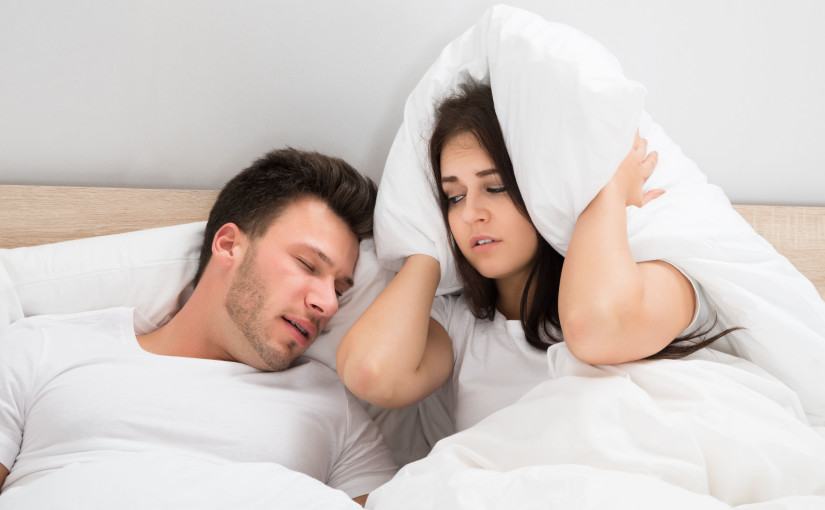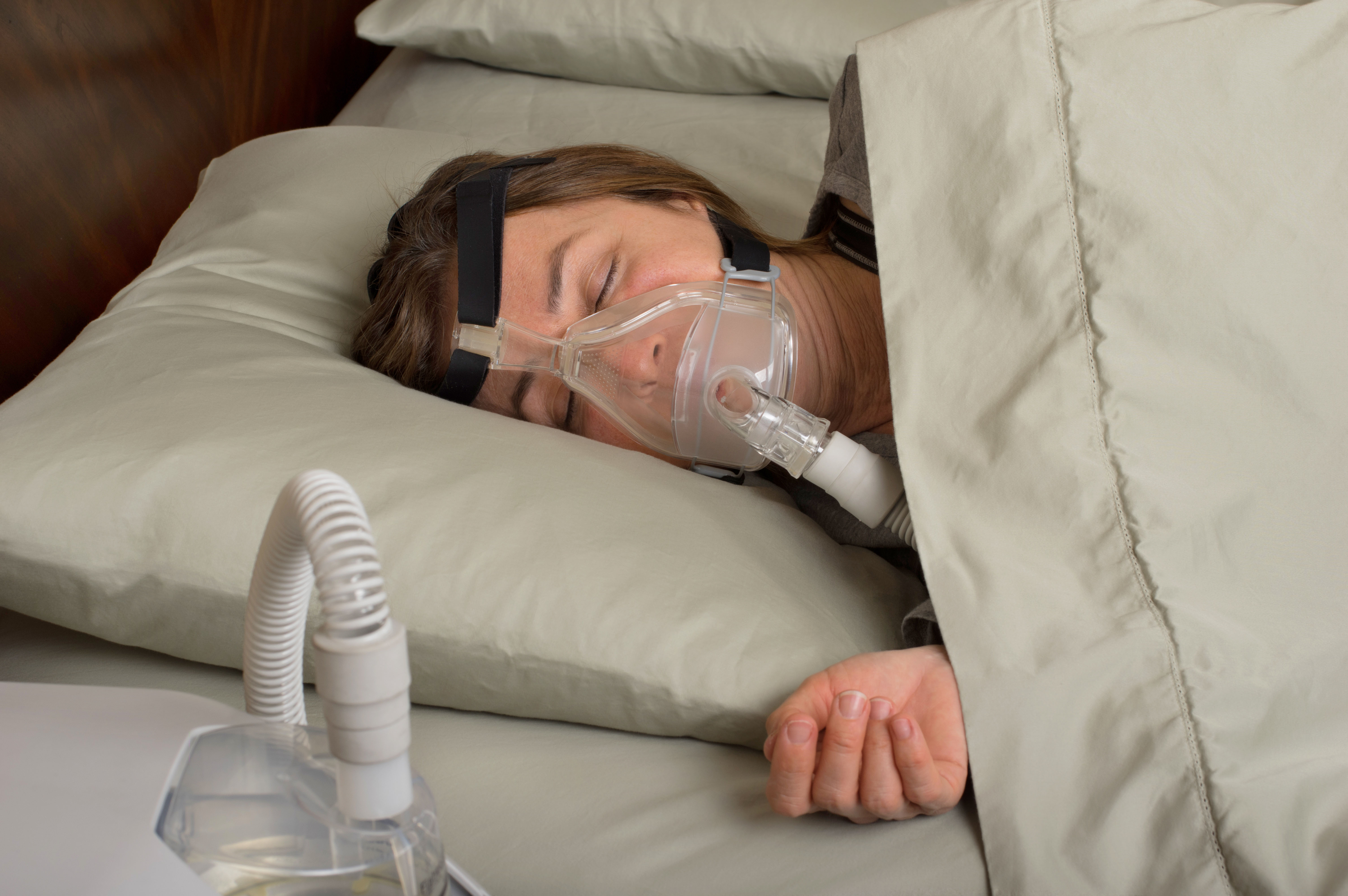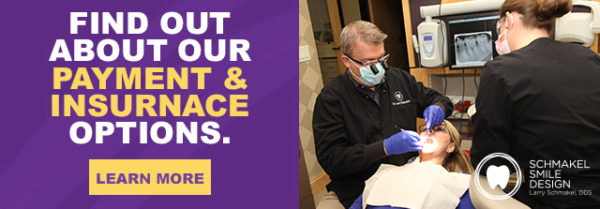Losing sleep because your partner snores all night? Worried he or she may be unhealthy or have a medical condition? While it’s often regarded in a humorous vein, snoring can be a sign of a potentially serious condition called Sleep Apnea. If these thoughts have crossed your mind, read on and educate yourself about sleep apnea symptoms and treatment.
What is Sleep Apnea?
Sleep apnea is a relatively common disorder that causes you to take shallow breaths or pause in your breathing while you sleep.
Pauses in your breathing can last from a few seconds to minutes, and you could experience this 30 times or more every hour! Typically after the pause, you’ll resume breathing again, (you may hear your spouse make loud noises during sleep, like snorting or choking sounds).
As you can guess, sleep apnea is an unhealthy, and usually chronic, condition that disrupts your sleep. When you pause in breathing, you move out of deep sleep and into light sleep. As a result, you won’t get a good night’s sleep (and neither will your spouse), which can dramatically affect your day. Sleep apnea is a leading cause of excessive daytime sleepiness, in addition to various other symptoms.
Symptoms of Sleep Apnea
 Sleep apnea symptoms can range from mild to severe. If you have sleep apnea, you may:
Sleep apnea symptoms can range from mild to severe. If you have sleep apnea, you may:
- Wake up with a very dry or sore throat
- Snore (one of the most common signs in obstructive sleep apnea)
- Occasionally gasp or choke as you wake up
- Be extremely sleepy or lack energy during the day
- Get morning headaches
- Wake up often to use the bathroom
- Sleep restlessly
- Be forgetful, moody, or uninterested in sex
- Suffer from insomnia
Quiz: Does Your Spouse have Sleep Apnea?
Worried your loved one or spouse may suffer from sleep apnea? Ask yourself if your spouse:
- Snores loud enough to disturb your sleep?
- Is excessively tired or fatigued during the day?
- Stops breathing during sleep?
- Wake up feeling groggy, or with a headache?
- Have a neck size greater than 17 inches?
- Have difficulty remembering things or concentrating on tasks.
- Experience excessive daytime drowsiness that causes him to fall asleep while he works, watches TV, or even drives?
If your partner has one or more of these symptoms, he is at higher risk for having sleep apnea. (However, the presence of any of these symptoms doesn’t necessarily mean that he has sleep apnea.)
What to Do
If you answered yes to any of the questions above, encourage your spouse to talk with a medical professional about it. Left untreated, sleep apnea can lead to serious health problems over time, including diabetes, high blood pressure, heart disease, stroke, and weight gain.
Once diagnosed, treatment for sleep apnea may include one or more of the following:
- Lifestyle changes, such as losing weight
- Continuous Positive Airway Pressure (CPAP) or a similar machine that uses positive airway pressure to help you breath
- Oral breathing devices or other devices (such as nasal dilators) worn at night
Getting treatment if necessary can mean better health, increased energy, during the day, and a better night’s sleep for all!
Sleep Apnea Treatment in Toledo & Sylvania
With more than 27 years of dentistry experience, Dr. Larry Schmakel offers comprehensive snoring and sleep apnea services. We treat this disorder using Oral Appliance Therapy (O.A.T.) which includes custom fit mouth pieces that re-position the lower jaw while you sleep to create more airway space. Dr. Schmakel works closely with all of the Sleep Labs and Pulmonologists in the Toledo area to facilitate the best treatment for you, his patient!
We are proud to be your dentist in Toledo, near Sylvania.
Expect personalized treatment with the latest dental technologies at Schmakel Smile Design. To set up an appointment, contact us today:
(419) 841-9494 or [email protected]
4343 N Holland-Sylvania Rd
Toledo, OH 43623
Connect with Schmakel Smile Design on Social Media!
Facebook | Twitter | Google+ | YouTube















